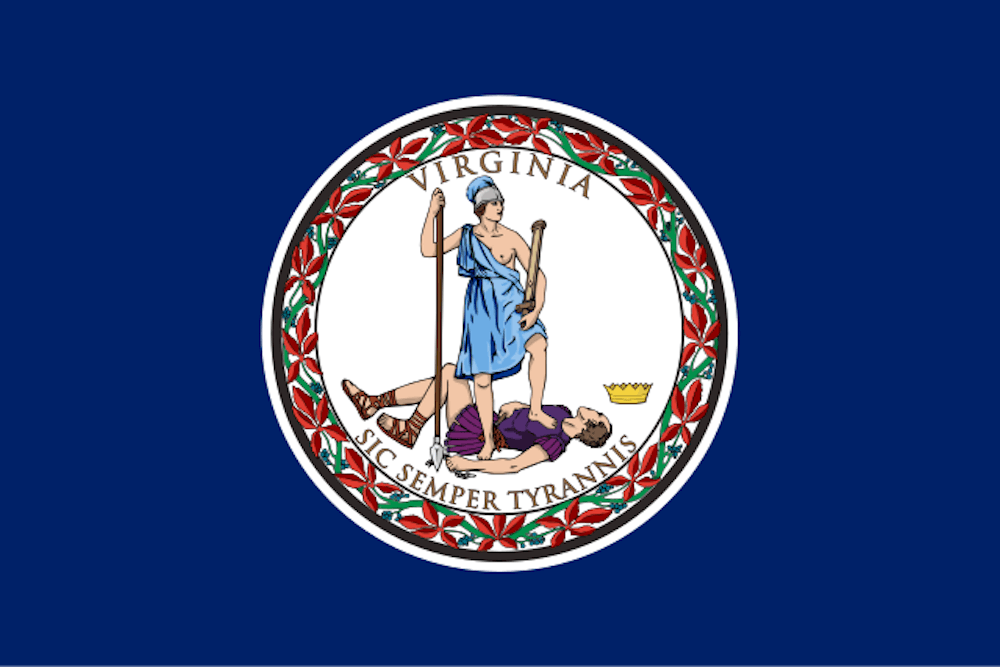The Virginia Senate sent a letter Tuesday to Interim University President Paul Mahoney and Board of Visitors Rector Rachel Sheridan relaying its “grave concern” regarding a Compact for Academic Excellence in Higher Education which the University received last week. The letter calls upon the University to immediately cease consideration of the Compact, and if not, the Commonwealth will work to negatively impact the University’s funding.
“This is not a partnership,” the letter reads. “It is, as other university leaders have aptly described, political extortion.”
The Cavalier Daily obtained the letter from an anonymous source, and University Spokesperson Bethanie Glover confirmed that the University received the letter. Senate Majority Leader Scott Surovell, D-Fairfax, signed the letter, as well as State Sens. L. Louise Lucas, D-Portsmouth, and Mamie Locke, D-Hampton.
Sheridan, Mahoney and Vice Rector Porter Wilkinson responded to the letter Wednesday. The response acknowledges that the compact raises crucial questions for the University and higher education more broadly, and it reiterated that the University’s decisions will be guided by founding principles of integrity and academic freedom.
The response said that the University has worked to address continuing challenges posed by the federal government while remaining true to University values.
“The University has steadfastly maintained its founding commitment. As the current stewards of that legacy, we have no intention of abandoning the University’s principles,” the response reads.
The University was one of nine institutions to receive the Compact Oct. 1. Signatories of the Compact commit to upholding the principles outlined, including practices regarding diversity in hiring and admissions processes, public access to GPA and other academic information, principles of institutional neutrality and federal permission for international student visas in exchange for preferential access to federal funding.
“The proposed compact represents an unprecedented federal intrusion into institutional autonomy and academic freedom,” the letter reads. “The conditions outlined … are fundamentally incompatible with the mission and values of a premier public research university.”
The letter says that agreeing to the Compact will only further encourage and allow the government to encroach upon the University’s autonomy. It also discusses the University’s founding in the context of Jeffersonian ideals, including free inquiry and intellectual independence, and it says that these values would be betrayed if the University agreed to the compact in return for preferential access to federal funding.
The senators’ letter also says that beyond the Compact’s “assault” on the University's autonomy, they believe the Compact is filled with contradictions. They highlighted that the document calls for both academic freedom and an uninhibited flow of ideas alongside a termination of “belittling” treatment to conservative viewpoints. The letter said that requirements of viewpoint diversity and restricting such belittlement are too subjective to reasonably enforce.
Additionally, the letter said that the Compact’s provisions regarding holistic admissions and hiring decisions would harm the University, as would prohibiting faculty to speak on “matters of societal importance.”
According to the letter, this latest federal action must be viewed in the context of recent federal actions of overreach, namely former University President Jim Ryan’s forced removal.
“The Department of Justice forced the resignation of President James Ryan through what can only be described as extortionate tactics,” the letter read. “Having already demonstrated its willingness to force out a university president who would not bend to its will, the Trump Administration now seeks to formalize its control through this compact.”
The letter concluded by urging the University to remain true to its core mission, join other higher education institutions resisting federal overreach and recognize the Compact as a “trap” that would make the University unnecessarily beholden to the federal government’s will.
“The Commonwealth and this institution’s stakeholders deserve to see swift, unequivocal rejection of this federal overreach,” the letter reads.
The letter noted that the Senate manages appropriations affecting higher education, and said it will not subsidize the University if it cedes its independence to federal political control. The University is approved to receive just under $300 million from the state for FY 2025-2026. The Democrats have control of the State Senate.
“If the [University] signs this compact, there will be significant consequences in future Virginia budget cycles,” the letter read.
The University of Pennsylvania is also one of the nine schools included in the Compact, and the Pennsylvania state legislature has moved to introduce a bill that would block the university from signing the Compact. The legislation would prohibit Pennsylvania institutions that get state funding from signing the Compact or agreeing to similar attempts of overreach by the federal government.
The nine universities have until Oct. 20 to reply with “limited, targeted” feedback to the government and until Nov. 21 to submit a signed agreement. Regarding a University-specific response to the Compact, Mahoney has created a working group to advise him on an appropriate decision, and Sheridan assured the University community via an email sent Monday that the University’s response will be guided by principles of academic freedom and free inquiry.
The University’s response to the Senate Democrats Wednesday echoed similar sentiments.
“Your letter makes clear that you share the same devotion to this University that motivates our service, so we appreciate you conveying your views and we look forward to working together with the Commonwealth’s leaders to promote and protect the University,” the response read.
According to the letter, the Virginia General Assembly has stood by its opposition to the federal government’s attempts to assert control since Ryan’s resignation, but the government has continued to escalate its assault on the University’s autonomy. The Senate stands by its beliefs regarding the University's independence, the letter said.
“The principle remains clear: decisions about the University’s academic policies, admissions standards and institutional values belong to the University and the Commonwealth — not to federal bureaucrats pursuing a political agenda,” the letter reads. “We must now draw a firmer line … [we] will not stand by while the University surrenders its independence through this compact.”







